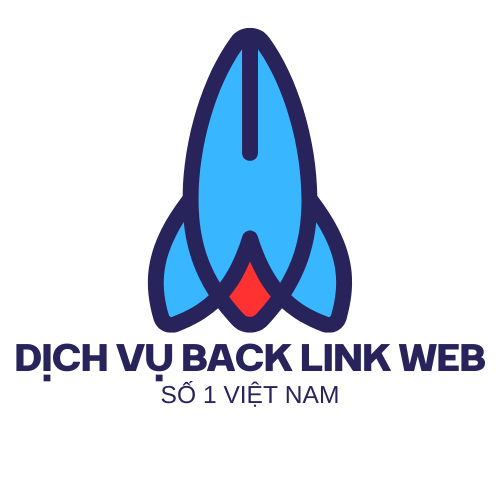5 Ways Blockchain Agriculture Is Transforming Vietnamese Farms
Hey there, friend! I wanted to chat with you about something I’ve been diving deep into lately: Blockchain Agriculture. Now, I know what you might be thinking – blockchain? Isn’t that for crypto? Well, yes, but it’s so much more! It’s actually revolutionizing how we track and understand where our food comes from, especially Vietnamese produce. I think you’ll find this pretty fascinating. It’s not just a buzzword; it’s a game-changer for transparency and trust in the food supply chain.

Enhancing Traceability with Blockchain
One of the biggest problems in agriculture is knowing exactly where your food comes from and how it got to your plate. With traditional systems, it’s often a complicated mess of paperwork and different parties handling the goods. Enter blockchain! Blockchain Agriculture offers an immutable, transparent ledger. Every step, from planting the seeds to shipping the final product, can be recorded on the blockchain. This creates a clear, verifiable chain of custody.
Think about it: you’re buying a bag of Vietnamese mangoes at your local grocery store. Using a QR code on the package, you can scan it and instantly see the farm where those mangoes were grown, the dates they were harvested, and even the transportation route they took to get to you. That’s the power of traceability!
I remember a few years ago, there was a salmonella outbreak linked to some imported peppers. It took weeks to trace the source. With blockchain, that could have been done in a matter of minutes, preventing further contamination and illnesses. That’s a massive improvement, and why I’m so enthusiastic about this technology. It truly protects consumers and builds trust.
Boosting Consumer Confidence in Vietnamese Produce
Let’s be honest, sometimes we’re skeptical about where our food is really coming from. Are those “organic” vegetables really organic? Are those “local” fruits actually grown nearby? Blockchain Agriculture can help alleviate those concerns. By providing a transparent record of the product’s journey, consumers can have greater confidence in the authenticity and quality of their food. This is especially important for Vietnamese produce, which is often exported and sold under various labels.
Imagine being able to verify that the dragon fruit you’re buying is indeed from a specific farm in Binh Thuan province, known for its high-quality fruit. You can see the certifications, the growing practices, and even the environmental conditions. This level of transparency not only builds trust but also allows farmers to showcase their commitment to sustainable and ethical practices. In a world where greenwashing is rampant, blockchain offers a real, tangible solution.
I believe this increased consumer confidence will translate into higher demand for Vietnamese agricultural products. When people trust the source and quality of their food, they’re more likely to buy it, creating a win-win situation for both consumers and farmers.
Streamlining the Supply Chain with Blockchain
The traditional agricultural supply chain can be incredibly complex, with multiple intermediaries, paperwork, and potential for delays and inefficiencies. Blockchain Agriculture can streamline this process by creating a shared, immutable ledger that all stakeholders can access. This reduces paperwork, speeds up transactions, and minimizes the risk of fraud and errors.
Think about the sheer amount of paperwork involved in exporting a shipment of rice. There are customs documents, shipping manifests, quality certifications, and more. With blockchain, all of this information can be stored securely and accessed instantly by authorized parties. This not only saves time and money but also reduces the potential for human error and delays. A more efficient supply chain means fresher produce and lower costs for consumers.
I remember talking to a farmer in the Mekong Delta who was struggling to get his produce to market on time because of logistical bottlenecks. He was losing money and his crops were spoiling. Blockchain could help him overcome these challenges by providing a more efficient and transparent way to manage his supply chain.
Empowering Vietnamese Farmers through Fair Trade
One of the most exciting aspects of Blockchain Agriculture is its potential to empower farmers, especially smallholder farmers in Vietnam. By providing a direct link between farmers and consumers, blockchain can help eliminate intermediaries and ensure that farmers receive a fair price for their products.
Too often, farmers are exploited by middlemen who take a large cut of the profits. With blockchain, farmers can connect directly with buyers, negotiate fair prices, and track their payments securely. This increased transparency and control can help them improve their livelihoods and invest in sustainable farming practices.
I once visited a coffee cooperative in the Central Highlands of Vietnam. They were struggling to get a fair price for their coffee beans because they lacked the resources to market their products directly to consumers. Blockchain could provide them with the tools they need to reach a wider audience and command a better price for their hard work. It’s about leveling the playing field and giving farmers the opportunity to thrive.
The Future of Blockchain Agriculture in Vietnam
While Blockchain Agriculture is still in its early stages, the potential is enormous. As more farmers, businesses, and consumers adopt this technology, we can expect to see even greater transparency, efficiency, and sustainability in the Vietnamese agricultural sector. It’s not just about tracking food; it’s about building a more equitable and resilient food system for everyone.
I envision a future where consumers can confidently choose Vietnamese produce knowing that it’s ethically sourced, sustainably grown, and of the highest quality. This will not only benefit Vietnamese farmers but also enhance the reputation of Vietnamese agricultural products on the global market. It’s an exciting prospect, and I’m eager to see how this technology continues to evolve and transform the industry.
So, there you have it! That’s my take on how blockchain agriculture is set to revolutionize Vietnamese farms. Hope you found that as interesting as I do. It’s definitely something to keep an eye on!
